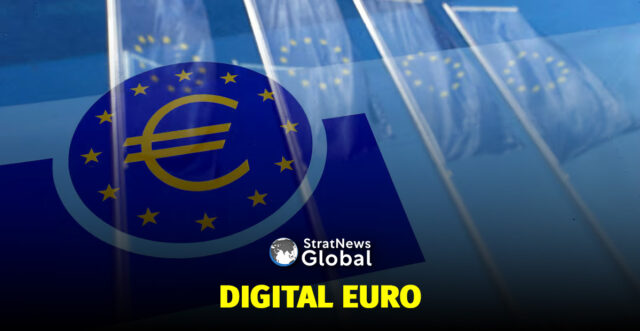European Union finance ministers on Friday backed a roadmap to introduce the digital euro, aiming to offer a home-grown alternative to the US-dominated Visa and Mastercard payment systems.
Discussions on a digital euro, essentially an electronic wallet backed by the European Central Bank, heated up this year because the EU is now keen to reduce its dependence on other countries in key areas like energy, finance and defence.
The ECB has pitched the digital euro as a way to cut Europe’s reliance on US credit cards and as a response to US President Donald Trump’s global push for stablecoins pegged to the US dollar.
But the ECB, the main sponsor of the project, has failed so far to secure legislative approval for it, with lawmakers and bankers complaining it may hollow out banks’ coffers, cost too much or curtail privacy.
Sign Of Progress
In a sign of progress, EU finance ministers gathering with ECB President Christine Lagarde and European Commissioner Valdis Dombrovskis in Copenhagen on Friday reached an agreement on the next steps.
This will give EU finance ministers a say on whether a digital currency is issued and how many such euros each resident will be able to hold, which is seen as crucial for assuaging fears of a run on bank deposits.
“The compromise that we reached is that before the ECB makes a final decision in relation to issuance…there would be an opportunity for a discussion in the Council of Ministers,” Paschal Donohoe, who chairs meetings of finance ministers, told a joint press conference.
Donohoe, Lagarde and Dombrovskis also celebrated a compromise on the procedure for setting the holding limit although they didn’t give details.
A participant at the meeting told Reuters the ECB will also submit a proposed holding limit for approval by the European Council of Finance Ministers.
Delays To Legislation
Though the European Commission proposed digital euro legislation in June 2023, the other two institutions that have to sign off on it, the European Parliament and the European Council, have yet to do so.
The European Council aims to wrap up its side of the work by the end of the year.
The ECB hopes to have the legislation in place by June, after which it will need around two-and-a-half to three years to actually launch the digital euro.
Some EU countries have their own national digital payments systems, but none that would be accepted across the 27-nation bloc.
“The digital Europe is not just a means of payment, it is also a political statement concerning the sovereignty of Europe and its capacity to handle payment, including on a cross-border basis, with a European infrastructure and solution,” Lagarde said at the press conference.
(With inputs from Reuters)





